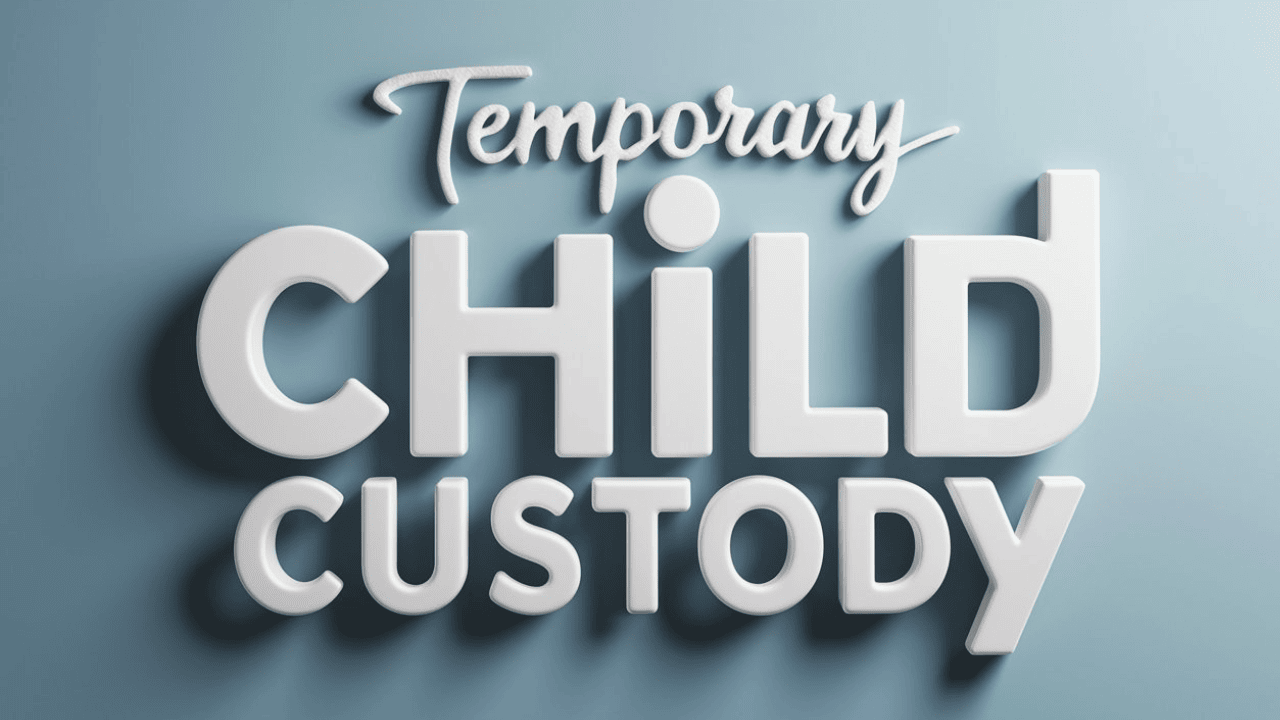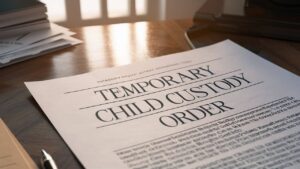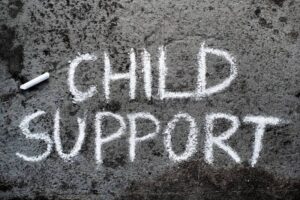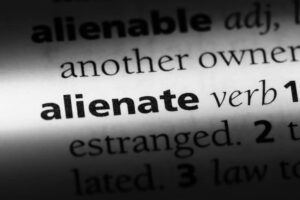
Navigating Temporary Child Custody Orders in North Carolina
In the case of Lawrence v. Lawrence, the North Carolina Court of Appeals examined the complexities of transitioning from temporary to permanent custody orders. This June 18, 2024, case highlights important legal principles that impact parents navigating child custody arrangements and the need for timely action and the helpfulness of clear, unambiguous language setting forth that an agreement is without prejudice.
Case Background
The parents of a minor child were embroiled in a custody dispute over their daughter.
After their separation in November 2018, they agreed on a temporary custody arrangement in January 2019, which was later modified in April 2019.
The Plaintiff sought a permanent custody arrangement, while the trial court ruled that the temporary orders had become permanent due to the passage of time without a final hearing.
The Plaintiff appealed this decision.
The NC Court of Appeals ruled:
- It is clear from the plain language of the Consent Order(s) that the agreement was entered without prejudice despite the failure to specifically include that term of art
- The trial Court’s ruling that the Consent Order and the Modified Consent Order transitioned to permanent Custody Order “by acquiescence” was in error
- The record “does not support” the trial Court’s conclusion that the Plaintiff failed to act in a timely fashion
- The trial Court’s conclusion that neither parent filed requests for no less than 18 months is “unsupported by the evidence”
- The relevant time period starts when the party requests a matter be set on for hearing, not when the hearing itself is held
Legal Principles and Court’s Reasoning
Temporary vs. Permanent Custody Orders
Temporary custody orders are intended to provide interim arrangements until a final custody decision is made.
These orders do not determine the parties’ ultimate rights and are usually short-term, designed to last only until a further court hearing.
Permanent custody orders, on the other hand, establish long-term arrangements that remain in effect until modified by the Court (the Judge).
Such orders can only be changed if a substantial change in circumstances affects the child’s well-being.
Determining Permanency: The Senner Test
The court applied the Senner test to determine whether an order is temporary or permanent. According to this test, an order is considered temporary if:
- It is entered without prejudice to either party.
- It states a clear and specific reconvening time within a reasonably brief interval.
- It does not determine all issues.
If an order fails to meet any of these criteria, the child custody order could be deemed permanent.
The trial Court in this case had to decide if the temporary orders issued in January and April 2019 had become permanent.
Operation of Time and Acquiescence
A temporary order can become permanent if the parties do not seek a final hearing within a reasonable time.
The focus is on whether a party has actively pursued a hearing.
In this case, the trial Court ruled that the temporary orders had become permanent by acquiescence, stating that neither party sought a hearing within 18 months.
When is the best time to get Divorced?
Court of Appeals Decision
The North Carolina Court of Appeals disagreed with the trial Court’s ruling, finding that the Plaintiff had indeed made reasonable efforts to seek a final hearing. The NC Court of Appeals noted that:
- The Plaintiff filed multiple calendar requests and notices for hearings on custody within nine months of the initial temporary order.
- The delays were largely due to external factors, such as the COVID-19 pandemic and attorney withdrawals, rather than any lack of action by the Plaintiff.
Based on these findings, the Court of Appeals reversed the trial court’s decision and remanded the case for further hearings to establish a permanent custody arrangement.
Implications for Parents
This case underscores the importance of clearly setting forth the temporary nature of initial custody orders and the need for timely legal action to protect and preserve legal rights.
Parents involved in custody disputes should actively pursue final hearings and ensure that any delays are documented and justified, instead of relying on a temporary child custody order. 
As a practical matter, including language within a Temporary Child Custody agreement setting forth the parties are not prejudiced is generally advisable but not necessarily dispositive.
It is helpful for the parties to make clear in the Consent Order that it is, in fact, a temporary custody arrangement that will be entered “without prejudice to the rights of either party.”
Indeed, even absent such “without prejudice” language, the Order may be deemed temporary if it is clear from the plain language within the Order that such Order will be entered without the loss of rights to either or both parties.
1. What is a temporary child custody order in North Carolina?
A temporary custody order provides a short-term arrangement for child custody while awaiting a final decision from the court. These orders establish immediate custody and visitation schedules to ensure stability and routine for the child during the legal process. Temporary custody orders help maintain the child’s well-being by outlining where the child will live and how much time they will spend with each parent until a permanent custody arrangement is determined.
2. How does a temporary order become permanent?
A temporary order can become permanent in North Carolina if it does not meet the criteria established by the Senner test, which includes:
- It is entered without prejudice to either party.
- It states a clear and specific reconvening time within a reasonably brief interval.
- It does not determine all issues.
If these criteria are not met, and neither party seeks a final hearing within a reasonable time, the court may deem the temporary order permanent by default. The court considers whether the parties have actively pursued a hearing and whether there have been justified delays. If a significant period passes without action, the temporary order may become permanent in certain circumstances. Thereafter, seeking a modification of child custody in North Carolina requires a substantial change in conditions.
That’s one reason it makes sense to consult with a family law attorney about the specific aspects of your legal matter. If you have a child custody matter in Charlotte, please call now to discuss the firm’s availability for legal representation and the costs associated with retaining our divorce lawyers in Mecklenburg County. Call: 704-342-4357
3. What is considered a reasonable time to seek a final hearing?
The definition of a “reasonable time” can vary depending on the circumstances. Generally, courts expect parties to seek a final hearing in a timely fashion. Factors like court availability, legal counsel changes, and external events like the COVID-19 pandemic can influence what is considered reasonable. The Court may also consider whether the parties have been actively engaged in negotiations and attempting to resolve child custody issues through means other than litigation.
4. Can a permanent custody order in North Carolina be modified?
Yes, a permanent custody order can be modified, but it generally requires a substantial change in circumstances that affects the child’s well-being. This could include changes in the child’s needs, a parent’s relocation, or significant changes in a parent’s ability to care for the child. The requesting party must provide evidence to support the need for modification.
5. What should I do if a child custody order is not working for my family?
If a temporary child custody order is not meeting your family’s needs, you should seek legal advice to discuss possible modifications. It is important to document any issues with the co-parent and communicate with your attorney about the most appropriate course of action and the best interests of your child. If the court is tasked with the responsibility of determining custody, it must ensure the child’s best interests are met.
6. How does collaborative divorce work in Charlotte?
Collaborative divorce is a process where both parties and their attorneys work together to negotiate a settlement without the intervention of a family court judge. This approach focuses on cooperation and communication, allowing the divorcing couple to resolve various issues amicably.
In a collaborative divorce, the couple works with their attorneys and may also involve other professionals, such as financial advisors or child specialists, to address and resolve key issues including:
- Equitable Distribution: The fair division of marital assets and debts.
- Child Custody: Determining where the children will live and how parenting time will be shared.
- Child Support: Establishing financial support for the children’s needs.
- Alimony: Deciding on financial support for one spouse post-divorce.
The goal of collaborative divorce is to create a mutually agreeable settlement that meets the needs of both parties and their children, fostering a more positive and respectful post-divorce relationship. Once an agreement is reached, it should be reviewed and approved by the court to become legally binding. This method often reduces the emotional and financial stress associated with traditional divorce litigation.
7. How do mediation and collaborative divorce impact custody decisions?
Both mediation and collaborative divorce can be effective methods for resolving custody disputes without prolonged court proceedings. During mediation, both parties work with a neutral third party to reach an agreement. Similarly, in a collaborative divorce, both parties and their attorneys work together to negotiate a settlement. If an agreement is reached in either process, it should be reviewed and approved by the court to become legally binding. Both approaches provide a less adversarial and more cooperative way to address custody arrangements, promoting a positive outcome for all involved.
8. What role does the child’s preference play in custody decisions?
The child’s preference can be a factor in custody decisions, especially if the child is older and capable of expressing a reasoned preference. Courts will consider the child’s wishes alongside other factors, such as each parent’s ability to meet the child’s needs and the overall stability of the proposed arrangements. The child’s best interests remain the primary consideration.
9. What are the key factors in determining custody arrangements?
Courts consider various factors when determining custody arrangements, including the child’s best interests, each parent’s ability to provide care, the child’s relationship with each parent, and the child’s stability and continuity of care. The goal is to create a custody arrangement that supports the child’s well-being and development.
10. How can I ensure a smooth transition from temporary to permanent custody?
To ensure a smooth transition from temporary to permanent custody, maintain active communication with your attorney, attend all court hearings, and comply with court orders. Document your involvement and efforts to provide a stable environment for the child. Seeking a timely final hearing and being prepared can help facilitate a smooth transition.
11. What if both parties agree on custody changes?
If both parties agree on custody changes, they may be able to submit the modified agreement to the court for approval. This ensures the changes are legally binding and enforceable. It is a good idea to work with legal counsel to ensure the agreement meets legal standards and addresses all relevant issues.
By understanding the legal principles and processes involved in child custody cases, parents can navigate the system more effectively and make informed decisions that prioritize their child’s well-being.
This blog post aims to provide a clear and comprehensive understanding of the legal principles involved in the Lawrence v. Lawrence case, helping parents grasp the complexities of temporary custody orders. If you would like more information about Child Custody legal issues in Charlotte, we may be able to help. Call Now: 704-342-4357
Helpful Information about Child Custody
- Charlotte Divorce FAQs
- How much is Child Support?
- Facing Domestic Violence Charges in Charlotte? Lawyer Up!
- Need a Criminal Defense Lawyer in Charlotte? Check out our other Criminal Law website
- Finding the right Child Custody Lawyer for you
- What is a Domestic Violence Protective Order?
- Do Separation and Divorce affect your child and school?
Charlotte Child Custody Lawyer – Bill Powers
In conclusion, the Lawrence v. Lawrence case, as deliberated by the North Carolina Court of Appeals on June 18, 2024, sheds light on the intricate processes involved in transitioning from temporary to permanent custody orders. This case underscores some of the vital legal principles that shape child custody in North Carolina, emphasizing the importance of timely action and the clarity of agreements made without prejudice. By understanding these nuances, parents can navigate the complexities of family law with greater clarity, helping to protect the best interests of children. If you are in need of a child custody lawyer in Charlotte and the surrounding counties of Union, Iredell, or Gaston County NC, please call 704-342-4357 now to schedule a confidential consultation.
Learn More

Separation and Divorce: Helpful Tips for a Happy Holiday Season
The holiday season, a time traditionally associated with joy, togetherness, and celebration, can become a daunting ordeal for those navigating the sometimes turbulent waters of divorce, parenting, and visitation.
In the midst of twinkling lights and festive cheer, some parents find themselves grappling with a complex array of emotions, occasionally including the “holiday blues.”
That’s entirely normal and understandable.
Even in the best circumstances, the holidays can be challenging.
Divorce is a life-altering journey, and when combined with the responsibilities of co-parenting, the challenges can feel overwhelming.
Amid any swirling uncertainty, hope and empowerment can be found – Bill Powers, Divorce Attorney
This post seeks to shed light on the poignant subject of divorce, visitation, and co-parenting, offering some practical tips during the holiday season.
Join us as we explore the transformative power of resilience, compassion, and effective co-parenting strategies.
Our goal is to encourage harmonious and memorable holiday experiences.
Consider Your Personal Well-Being
It’s smart for parents to consider their own needs and mental health during and after a divorce.
Remember that taking care of yourself is not selfish and may, in fact, be a healthy aspect of being the best parent you can be – Bill Powers, Divorce Lawyer Charlotte NC
Seeking support from friends, family, or a therapist may provide valuable outlets for processing emotions and stress.
Divorce can bring about feelings of guilt, especially when it involves children.
It’s helpful to remember that legal separation and divorce are complex decisions, and feeling guilty is an understandable (and very human) part of the process.
Allow yourself to let go of that guilt and focus on creating a positive environment for both you and your children, which is more important in the long run.
Rather than dwelling on the challenges of divorce, try to focus on the positive aspects and newfound freedoms.
Understand that spending some time away from your children can provide you with opportunities for personal growth, self-care, and pursuing your own interests.
Love without pressure
When you do spend time with your children, make it enjoyable without pressuring them.
Let them know that your time together is about creating positive memories, not about expectations or demands.
This approach helps foster a healthy parent-child relationship post-separation and divorce.
Remember that children are resilient, and they can adapt to new family dynamics.
Embrace now
Savor the moments you have with your kids, and instead of worrying about how things used to be, focus on creating new traditions and experiences that will strengthen your bond. 
Co-parenting can be challenging, but it’s crucial to maintain a respectful and open line of communication with your ex-partner.
Keep the lines of communication open to ensure that your children receive consistent messages and support from both parents.
Flexibility is key when it comes to co-parenting.
Be willing to adjust schedules and arrangements to accommodate your children’s needs and changes in their lives. Showing adaptability and cooperation will make the process smoother for everyone involved.
Celebrate the uniqueness of your role as a parent.
Embrace the opportunities to nurture, guide, and influence your children in your own special way.
Your relationship with them is valuable and irreplaceable.
Quality over Quantity
Emphasize quality over quantity in your time with your children.
Engage in activities that promote bonding and create lasting memories.
These meaningful interactions are what children will cherish most.
Set aside time for self-care and personal growth.
Pursuing your own interests and hobbies can be fulfilling and serve as a positive example for your children on the importance of personal development.
It’s OK to ask for help
Don’t be afraid to seek support from support groups or professional counselors.
They can provide valuable insights, coping strategies, and emotional guidance.
Remember that healing takes time, and it’s okay to have moments of sadness or frustration. 
Allow yourself to grieve the loss of your previous family structure while embracing the possibilities of a brighter future for you and your children.
Ultimately, focusing on your well-being, letting go of guilt, celebrating your newfound freedoms, and creating positive, pressure-free moments with your children are steps toward building a fulfilling life post-divorce.
You have the capacity to navigate this journey with resilience and grace, ensuring a bright future for both you and your children.
Divorce Quick Tips:
- Always prioritize the best interests of the child when making scheduling decisions. They may want to see both parents and sides of the family. Listen to them.
- Consider factors such as the child’s age, preferences, and any special traditions they may have.
- Minimize disruption to the child’s routine and create a sense of stability during the holiday season.
- Technology can be a valuable tool for co-parents dealing with scheduling conflicts. Shared online calendars and messaging apps can help co-parents stay organized and coordinate visitation plans efficiently. Digital tools can reduce misunderstandings and streamline communication.
- In cases where conflicts persist despite efforts to resolve them amicably, consider involving a mediator, family counselor, or family law attorney.
Mediation can help facilitate discussions and reach constructive outcomes while minimizing stress and tension.
Legal support may be helpful, with family law attorneys assisting in aligning arrangements consistent with existing legal agreements, Court Orders, and prioritizing the child’s best interests.
While scheduling conflicts during the holiday season can be challenging for divorced and separated parents, effective communication, compromise, and a focus on the child’s well-being are key to finding workable solutions.
By working together, parents can create a harmonious holiday schedule that allows their children to enjoy the season with both parents in a positive and supportive atmosphere.
Scheduling After Separation or Divorce: Smart Ways to Avoid Conflicts
Dealing with scheduling conflicts during the holidays can be a challenging task for separated and divorced parents.
The desire to spend quality time with children on special occasions like Thanksgiving, Hanukkah, and Christmas can lead to conflicts over who gets to have the children and when.
Clearly, that can add stress and tension to an already emotionally charged time of year.
One crucial approach to avoid scheduling conflicts is open and honest communication between co-parents – Bill Powers, Charlotte Divorce Lawyer
Initiating conversations about holiday plans well in advance of the season can allow for ample time for discussion and negotiation.
During these discussions, both parents can express their desires and priorities for specific holidays.
Creating a holiday calendar collaboratively can also be an effective strategy.
Any calendar should outline where the children will be on specific dates, and it’s important to clearly define which holidays are most important to each parent.
A willingness to compromise on less significant holidays or times to ensure fairness and balance in the schedule is a good idea.
Remember, you define what is ‘quality time’ with your children, not the calendar or others’ expectations – Bill Powers, Family Law Attorney in Charlotte NC
Alternating holiday custody arrangements each year is a strategy the Court (the Judge) and parenting agreements may employ to help mitigate scheduling conflicts.
For instance, if one parent spends Thanksgiving with the children this year, they can plan to switch roles with the other co-parent for the next year.
This way, both parents get the opportunity to create special holiday memories with their children.
Likewise, the parent who has the children for Thanksgiving may not have them for Christmas or Hanukkah during that same year.
This balanced approach ensures that both parents share in the joy of celebrating significant holidays with their children, fostering a sense of fairness and inclusivity.
In cases where full-day arrangements are not feasible, consider planning for half-day visits.
This allows both parents to share in the holiday festivities and spend meaningful time with their children.
The key is the quality of the time you spend with your children, not necessarily the time of day or even the day – Bill Powers, Charlotte Child Custody Lawyer
Half-day arrangements can be especially beneficial for children who want to see both parents on the same day.
Helpful Information about Divorce in North Carolina
Considering Divorce? Here’s Where to Start
The North Carolina Divorce, Alimony & Child Support Law
What you need to know about Child Custody in North Carolina
Navigating the Delicate Timing of Separation and Divorce
Separation, Divorce and Your Child: Academic Performance
Why hiring a divorce attorney is so important
Learn More
Separation, Divorce and Your Child: Academic Performance
The disintegration of a family unit can cast long shadows over children’s lives, extending its reach into their educational spheres.
For parents wading through the murky waters of divorce and separation, the unintended consequences often manifest in their child’s academic performance.
In this article, we delve into these multifaceted issues, aiming to arm parents with knowledge and strategies, answering:
- How can the turmoil of domestic life impact school and social settings?
- How can parents act as a buffer and steer their children through this turbulent phase?
Prioritizing Your Children
It’s imperative your children’s well-being and requirements are the driving force behind every decision during the divorce process. In North Carolina, our legal precedents dub this the “Polar Star” or “North Star.”
Considering the best interests of children, parents must endeavor to provide a nurturing environment amidst sometimes seismic shifts in their domestic life – Bill Powers, Charlotte Divorce Lawyer
Gaining insights into your child’s emotional and scholastic state can help parents share information and shape their responses to common questions, ensuring your children feel both supported and heard.
Considering Divorce? Here’s Where to Start
While they were not part of the decision-making process in ending the marriage, children are called to live with the consequences. Anticipating their worries and concerns helps ease the blow.
Engaging with educators, therapists, and counseling experts adept at handling the nuances of family transitions can be instrumental. It’s paramount that children’s welfare remains the beacon illuminating each move, requiring compassion, adaptability, and an unyielding dedication to their holistic growth.
Concentration Challenges
Children grappling with the emotional weight of a divorce may find it hard to stay attentive, leading to a slump in grades.
Educators may pinpoint a drastic reduction in class participation or a wavering focus. The news of an impending separation and eventual divorce is a tumultuous time. Bolstering your child’s academic needs with patience and understanding can make a tremendous positive difference.
The emphasis should be on nurturing trust, fostering open channels of communication, and ensuring a stable environment.
Focus on the Child: By immersing yourself in your child’s world and fortifying ties with educators and support networks, you can help limit, and to some extent, alleviate the adverse effects of separation and divorce on scholastic achievements. 
Monitor Behavioral Shifts: A child’s behavior can offer valuable insights. An uptick in reclusive tendencies or unruly behavior can hamper learning and social bonds. Recognizing these shifts and liaising with school staff opens doors to customized interventions. If these changes linger, consider seeking expert help from therapy and family counseling.
Watch Friendship Dynamics: Alterations in friendship circles or mounting challenges in bonding with peers might surface. Kids occasionally grapple with feelings of alienation due to their parents’ relationship status. Prioritizing heart-to-heart discussions about their emotions and fostering opportunities for social engagements can help sow seeds of resilience.
Strategies for Supporting Young Minds
A comprehensive, well-thought-out plan is invaluable when tackling the intertwined challenges of divorce.
Your blueprint for success should incorporate emotional, educational, and social facets, tailored to the distinct needs of each child – Bill Powers, Child Custody Lawyer
To be clear, one size does not fit all. Children each have their own way of dealing with the perceived loss of control, consistency, and reliability. By committing to predictable routines and championing a culture of open dialogue, children can be enveloped in a cloak of love and an assured sense of security.
Why Hiring a Divorce Lawyer is So Important
Consistent Routines: Children often find solace in predictability. Maintaining a fixed schedule for homework, meals, and sleep can impart a semblance of normalcy. It’s a good idea to involve your child in crafting this routine, empowering them with a modicum of control.
Transparent CommunicationCultivate an environment where your child feels safe voicing their feelings. Make it a ritual to check in on their emotional state, reinforcing that their emotions hold validity. Kids, just like their parents, find it important to be heard. Communication provides agency to children, giving them the opportunity to perceive their new environment, set forth and achieve goals, and personally impact their futures.
emotional state, reinforcing that their emotions hold validity. Kids, just like their parents, find it important to be heard. Communication provides agency to children, giving them the opportunity to perceive their new environment, set forth and achieve goals, and personally impact their futures.
School Collaboration: Fortifying ties with educators and counselors ensures that they’re clued into your child’s specific needs. Truth be told, teachers, coaches, and counselors may very well experience more face time with children than parents. Periodic discussions can unearth insights into your child’s scholastic journey and social evolution. Making educators aware of life changes and personal challenges, on a proactive basis, can be key to a child’s academic and social success.
Seeking Professional Insights: Therapists and family counselors may serve as safe havens for your child, offering them the space to vocalize and navigate their emotions when talking to parents is just too hard and emotionally overwhelming. Moreover, family therapists can play a pivotal role in ensuring the legal aspects of child custody, and visitation resonate with your child’s best interests. Early intervention can often stave off prolonged negative repercussions.
Separation: An Often Overlooked Phase of Divorce
Legal separation, a necessary precursor to divorce in North Carolina, can be a stormy phase for children. The transitory nature of separation can breed feelings of uncertainty. That’s understandable. Parents themselves may not know what the future holds or what life will look like both in the short term and in years to come.
During this interim phase, parents should do their best to double down on ensuring stability, open conversations, and emotional sustenance. Setting realistic expectations and centering the child’s well-being can be immensely beneficial – Bill Powers, Divorce Lawyer
Co-Parenting Challenges
Post-divorce, co-parenting might be best described as walking a tightrope. It’s a delicate balancing act, aiming to mirror rules and values in two different households.
What You Need to Know About Child Custody
For co-parenting to flourish, both parents need to be on the same page, with the child’s welfare as the common denominator. That can be easier said than done. A common factor in couples choosing to divorce often centers on the inability to come to an agreement on many issues, including but not limited to child-rearing decisions.
Looking Beyond the Present
It’s crucial to realize that the aftershocks of divorce on academic achievements can have long tendrils. It necessitates constant dialogue, academic performance monitoring, and quality time.
Navigating Legal Waters Before Taking the Plunge
Before uttering the words, “I want a divorce,” it’s vital to have a comprehensive grasp of your legal rights and legal responsibilities.
Talking to a lawyer makes sense. Indeed, upon determining your obligations under the law, you may find it appropriate to seek counseling rather than initiating divorce proceedings.
It’s advisable to seek legal advice from an experienced divorce lawyer. Family law attorneys help clients fathom the ramifications of divorce, including custody arrangements, child support, and alimony.
The Lingering Aftermath: Even after divorce papers have been signed and routines established, the ramifications of ending a marriage can linger. Parents might notice fluctuations in behavior, academic inconsistency, or challenging social adjustments even years post-divorce. As a custodian of your child’s welfare, it’s imperative to maintain an observant eye, attuned to shifts in their demeanor.
Maintaining Open Dialogue: Acclimation to change takes time. Rarely do humans just “get over” substantial changes in life. Coping with divorce often involves processing and going through stages such as despair, anger, and, hopefully, eventual acceptance and peace. One of the cornerstones of ensuring your child navigates the post-divorce landscape with resilience is fostering a consistent environment of open dialogue. This doesn’t merely entail discussing the divorce itself but encompasses a broader spectrum of their life experiences. It’s about nurturing a space where they feel validated, heard, and understood.
How Much is Child Support in NC?
Adjusting to New Realities: Divorce often brings new family configurations. This might mean a parent remarrying or the introduction of step-siblings. These adjustments, while potentially positive in some regards, come with their own set of challenges. It’s crucial for parents to facilitate smooth transitions, ensuring the child feels integrated and valued within the evolving family unit.
Financial Ramifications: Beyond the emotional and psychological facets, the financial implications of divorce can indirectly impact a child’s academic journey. Reduced household incomes might entail shifting to a new school district, the need for scholarships, or adjustments in lifestyle. It’s essential for parents to broach these topics delicately, ensuring children are mentally prepared for upcoming changes.
Cultural and Societal Perceptions of Divorce: Depending on the community, children might face societal stigmas or cultural perceptions tied to divorce. Addressing these proactively and equipping your child with coping strategies can help them stand tall amidst potential peer pressure or societal judgment.
The Role of Extended Family: Grandparents, uncles, aunts, and cousins often play an integral role in a child’s life. Their support can be instrumental during and post-divorce proceedings. Regular interactions, family gatherings, and consistent routines with extended family serve as anchors of stability for a child.
Powers Law Firm: Your Trusted Legal Partner
Embarking on the divorce journey deserves a blend of compassion, resolve, legal acumen, and unwavering support. The dedicated team at Powers Law Firm stands ready to guide families through these intricate waters. Reach out to us today for a private, no-obligation consultation, and let us light the path ahead.
We help people with family law issues in the Charlotte-metro region, including:
- Charlotte, North Carolina in Mecklenburg County
- Monroe, North Carolina in Union County
- Mooresville and Statesville, North Carolina in Iredell County
Charting the Path Forward
As parents, while you may traverse the legal and emotional complexities of divorce, it’s pivotal to keep the spotlight on your child’s well-being. By melding empathy with informed strategies, you can help ensure that your child’s academic trajectory remains robust and resilient, even in the face of family transitions.
While divorce marks an end, it’s also a beginning. It’s a journey of reinvention, of forging new paths and building stronger bonds. With the right support systems in place, both parents and children can emerge from this experience with newfound strength and understanding.
Should you require counsel or assistance during this transformative phase, Powers Law Firm remains steadfastly by your side, merging legal experience with genuine compassion.
Helpful Information for People Thinking About Divorce
- What is Equitable Distribution in North Carolina?
- What is Collaborative Divorce: Why is it Better?
- What happens if you’re accused of Domestic Violence?
- VICTIMS of Domestic Violence
- Understanding the NC Wiretapping Laws and Your Rights
- Why it helps to have a lawyer who handles both CRIMINAL DEFENSE and FAMILY LAW cases

Grey Divorce: Quick Tips
Divorce is rarely easy, but grey divorce – the term for couples over 50 who split up – can be particularly difficult.
The emotional, financial, and logistical challenges may seem daunting at first, but with these tips, you can help make the transition smoother:
1. Take your time
Don’t rush into any decisions. Take the time to reflect on what went wrong and how you want to proceed.
2. Immediately seek legal representation
Divorce laws, procedures, and outcomes can vary greatly from state to state, so it’s important to get advice from an experienced attorney near you who is familiar with the NC divorce laws and local protocols.
Do not assume divorce in North Carolina will be the same as in other states such as South Carolina, Georgia, or Virginia.
An unbiased, realistic assessment from an attorney will help you make informed decisions and protect your interests throughout the divorce process.
The sooner you have legal representation, the better. There are often important steps to take to protect yourself before you say, ‘I want a divorce’ – Bill Powers, Charlotte Divorce Attorney
We can help explain your legal rights, responsibilities, and options.
3. Talk to a therapist
Divorce can be stressful, no matter your age or the length of your marriage.
That’s particularly true if there are allegations of marital infidelity, sexual misconduct, or abuse.
What is Alienation of Affections?
Don’t be afraid to seek professional counseling if you are struggling with grief, depression, and anger.
A therapist can help you find ways to cope with the stress and transition into a new way of life.
4. Educate yourself on finances
Divorce often brings substantial financial changes, so it’s important to be as informed as possible about your finances.
Before making any big “life decision,” it is imperative to fully under how assets are divided in a divorce – Bill Powers, Divorce Attorney
You should also be aware of the implications of tax laws and insolvency laws, which can affect your estate planning, retirement accounts, and other financial matters.
5. Talk to a financial adviser 
Financial advisers can help provide sound advice for managing assets during and after the divorce process.
They can also offer tips for creating a budget and developing an achievable long-term financial plan.
Having a good understanding of your finances will help you make the best decisions during this time of transition.
We often recommend clients work with a financial planner who has no prior relationship or fiduciary relationship with your spouse. Confidentiality is important – Bill Powers, Mecklenburg Divorce Lawyer
6. Get organized
The divorce process is ordinarily quite complex. Having all the necessary documents in one place will help things proceed more smoothly and in a timely fashion. 
Gather all of your financial records and documents, such as tax returns, bank accounts, investments, pensions, and insurance policies.
This will provide a clearer picture of your potential post-divorce income and expenses and help your lawyer understand your financial condition.
7. Set boundaries
In any divorce, especially one involving couples over 50, it’s a good to set boundaries with your soon-to-be ex-spouse so that both of you can move on with your lives.
Keeping communication civil is key.
ADR – Alternative Dispute Resolution
Avoid unnecessary conflicts and acrimony. It’s OK if you don’t agree on everything.
If you find yourself in need of additional support, consider reaching out to friends or family members who can provide a different perspective and help guide you through the process.
8. Consider Collaborative Divorce
Collaborative divorce is a process that allows for both spouses to work together in resolving the issues of their divorce without litigation. 
It’s an alternative dispute resolution method that can lead to faster and less costly results than traditional litigation.
By working with a qualified collaborative law attorney, you may be able to settle the issues in your divorce without having to go to court.
Collaborative divorce is an effective way to reduce stress and create a peaceful resolution for all parties, especially those over 50 who are facing unique challenges during their divorce – Bill Powers, Charlotte Collaborative Divorce Lawyer
Bill Powers is a member of the International Academy of Collaborative Professionals and the Charlotte Collaborative Divorce Professionals.
9. Make a plan for living expenses
As soon as you decide to divorce, make sure you have a plan in place for how you will cover living expenses during and after the divorce process.
This may involve budgeting, carefully monitoring cash flow, and/or seeking Post Separation Support (PSS) and Child Support.
10. Embrace the new you
Your divorce may be an opportunity to start fresh and redefine who you are.
You may find that it gives you the freedom to pursue interests and activities that were once put on hold – Bill Powers, Divorce Attorney
Take this time to explore what makes you happy, and find a new sense of purpose and fulfillment.
Considering Divorce? Here’s Where to Start
No matter what the future holds, remember that you are in control of your life, and there is no better time to start fresh than now.
By taking the time to plan ahead, you can ease some of the stress that comes along with gray divorces.
With careful consideration and professional advice, you can move forward in life without missing a beat.
Do I need to change my will?
It’s a good review and update your will after you have gone through a divorce. 
Provisions in a pre-divorce will may no longer be valid (or appropriate) once the divorce is finalized.
For example, if your spouse is named as a beneficiary or executor of your will, it may be necessary to choose someone else for those positions.
Additionally, any bequests that were made to your former spouse very well may need to be updated or removed from your will and codicils to your will.
It is also important to update any health care directives (Declaration of Natural Death), Power of Attorney, and Medical Power of Attorney documents after a divorce, as such materials commonly contain provisions relating to your spouse that may not be appropriate post-divorce.
If you have any questions about the specific documents that need to be revised, it is best to consult with an attorney who can review your situation and advise accordingly.
Why a Divorce Lawyer is so important
In summary, it is important to review and update any estate planning documents after a divorce.
This is to ensure that the documents reflect your current wishes. An attorney can provide guidance and assistance on how to update your documents in order to protect your estate and legacy.
Who gets the house?
When it comes to who gets the house in a divorce, it depends on the specific facts and circumstances of your marital estate.
In many, if not most instances, the primary dwelling will be part of the marital estate. The division of real property is often one of the most important aspects of ED (Equitable Distribution) – Bill Powers, Charlotte Divorce Lawyer
Under the North Carolina divorce laws, the Court (the Judge) will divide the marital estate through something called Equitable Distribution.
A District Court Judge in North Carolina settles legal and factual disputes. Juries are not involved.
Classify, Value, and Distribute – CVD 
The Court must first classify the property, determining whether it is a jointly held asset and part of the marital estate or separate property.
Separate property is not subject to equitable distribution in North Carolina, and therefore remains the property of the party who owns it.
Once the Court classifies the marital estate, the next step involves determining the value of the property/asset.
Thereafter, the Court (the Judge) will then determine how to distribute the assets through a process called equitable distribution.
What is Equitable Distribution?
Equitable Distribution is a process used by the Court to divide marital assets (the marital estate) during a divorce in North Carolina.
This division of property must be fair, but not necessarily equal.
In determining the division of assets, the Court will consider several factors, such as the length of the marriage, each spouse’s contributions to the marital estate, their incomes, and earning potential.
The Court will also consider if either party intentionally wasted or destroyed marital assets prior to the divorce (marital waste).
“Equitable” doesn’t necessarily mean equal or fifty-fifty; the Court can consider various factors when determining the division of assets and is given broad discretion under N.C.G.S. Chapter 50.
This means that the Court may not necessarily divide the assets 50-50, but rather it will use its discretion to decide what is “equitable” given the unique nature and circumstances of the marriage.
What is considered during Equitable Distribution?
The Equitable Distribution Factors in North Carolina include things like:
(1) the income, property, and liabilities of each party;
(2) Each spouse’s contribution to the acquisition, preservation, or appreciation of property;
(3) Prior support obligations of either spouse;
(4) The needs of custodial and dependent children, if any;
(5) The age and health of each party; and
(6) Any other factor which the court deems relevant.
To be clear, Equitable Distribution only becomes necessary if the parties are unable to come to an agreement and/or are unwilling to sign a Separation Agreement.
ED is a notoriously complicated area of law. Your financial future deserves the attention of an attorney who will carefully review the full measure of the marital estate – Bill Powers, Equitable Distribution Attorney
What happens to retirement accounts?
Generally, contributions made to a retirement plan while married are often considered marital property and divided during divorce proceedings. 
There are important exceptions. Each marital estate, like each client, is unique.
Retirement accounts may include funds from an employer-provided pension plan or 401(k).
It is important to consider any tax implications and withdrawal penalties that may arise from transfers of assets held in retirement accounts.
In some circumstances, retirement accounts owned prior to marriage and not made part of the marital estate, may not be considered marital property and thus would not be part of a divorce settlement / Equitable Distribution.
Each state has its own laws governing how these assets should be divided. It’s best not to assume North Carolina’s divorce laws are the same as other jurisdictions, even neighboring states like South Carolina, Tennessee, and Virginia.
Ultimately, it is important to speak with an attorney regarding the specifics of your case.
Family law attorneys can help provide guidance on how a divorce will impact you and ensure that your legal rights are protected throughout the process.
Financial Considerations in Gray Divorce
In addition to Equitable Distribution, there are other financial considerations that should be made when it comes to a gray divorce, including issues such as:
- Retirement Funds / Retirement Savings
- Social Security Benefits
- Inherited Property
- Vehicles
- Vacation Homes / Investment Property
- Rental Income
- Family Businesses / Closely Held Corporations
- Health Insurance
- Dependant Adult Children
- Education Savings / 529 Plans
- Stocks / Bonds / Certificates of Deposit
- Deferred Income Sources
- Disability Insurance / Life Insurance
Charlotte Divorce Lawyers – Powers Law Firm PA
At Powers Law Firm PA, our family law attorneys understand the emotional and financial complexities of a grey divorce.
We’re dedicated to compassionate, zealous legal advocacy and encourage ADR when appropriate – Bill Powers, Charlotte Divorce Attorney
If you are facing a divorce, the family law attorneys at Powers Law Firm PA may be able help.
We understand the financial and emotional stress that such an event can bring and will work to make sure your rights are protected throughout the  process.
process.
**Prior to discussing any family law matter, our firm will conduct a conflict check to confirm the availability of the firm for legal representation. We charge consultation fees, hourly rates, and often require a True General Retainer to retain the law firm for family law cases.
We help clients with legal issues involving:
- Legal Separation
- Divorce
- Alimony
- Separation Agreements
- Child Custody
- Child Support
- Visitation
- Post Separation Support – PSS
- Equitable Distribution
- Domestic Violence Protective Orders – DVPO – 50B
- Alienation of Affection / Criminal Conversation

Considering Divorce? Here’s Where to Start
Thinking about separation? Considering Divorce? Not sure what to do?
If so, you’re not alone.
According to the latest statistics, more than 50% of marriages in the United States end in divorce.
While the divorce process may seem daunting, it’s important to remember that many couples who divorce eventually find happiness in their new lives.
A lot can depend on how things end with the present marriage.
If you’re considering getting divorced, we think it’s a good idea to start by gathering information and establishing a well-thought-out plan.
In this blog post, we’ll discuss the steps you may want to take before telling your spouse, “I want a Divorce.”
When is the best time to get divorced?
This is a difficult question to answer, as divorce proceedings are often quite unique.
However, there are some steps that you can take to help make sure that you’re making the best decision for yourself and your family:
1. Talk to an Attorney
It’s important to talk to an experienced divorce lawyer about the specifics of your case before making any decisions or filing any paperwork.
2. Educate Yourself
It’s also important to educate yourself about the divorce process and any local rules, protocols, and forms that may apply to your legal matter.
For example, the Mecklenburg County Local Rules of Domestic Court are thirty-six pages long and can be quite confusing if you’re not experienced with navigating our legal system.
4. Gather Documentation – Materials
An incredibly important aspect of divorce involves gathering materials and documentation.
In order to provide sound legal advice, divorce lawyers need information.
We need to understand and review things like temporary living arrangements, any proposed settlement agreement or separation agreement, and determine whether there is a history of domestic violence, substance abuse, or marital unfaithfulness. Most people don’t realize how truly complex a marital estate can be – Bill Powers, Charlotte Divorce Lawyer
We regularly ask clients to provide materials and documents, including but not limited to:
- Financial Statements – Bank Accounts, Checking and Savings Accounts
- Summaries of Marital Assets
- Credit Card Statements
- Student Loans
- Employee Benefits Handbooks
- Retirement Account Statements

- Life Insurance Policies
- Important Financial Documents
- Marital Property
- Separate Property
- Joint Accounts – Individual Accounts
- Marital Assets – Cars, Jewelry, Homes, Investment Properties
- Living Expenses – Copies of Budgets
- Mortgage Documents – Deeds, Promissory Notes
3. Consider Your Options
You should carefully consider all of the options available to you, such as divorce mediation or collaborative divorce, before making any decisions.
Why Hiring a Divorce Lawyer is So Important
An experienced divorce attorney can help explain the process and what to expect.
To be clear, separation and divorce fall within the category of a “major life change.”
4. Create a Budget
You should create a budget that takes into account the cost of living, as well as any attorney or court fees associated with filing for divorce.
5. Seek Counseling
If you are struggling to make decisions about whether to stay married or file for divorce, it may be helpful to seek the advice of a counselor or therapist.
Ultimately, it’s important to remember that each situation is unique and that you should carefully consider all of your options before deciding whether or not to divorce.
In addition, it’s imperative to be honest with yourself about why you are considering a divorce and what is truly important to you.
If you are considering a divorce, it’s important to take the time to make sure that you have all of the information and resources necessary to make an informed decision.
This can include talking to an experienced lawyer and seeking counseling if needed.
Family law attorneys encourage clients to consider their options, educate themselves, and create a budget.
That way, you can ensure that you make the best decision for yourself and your family.
Are there things to avoid?
When considering a divorce, there are certain things that you should avoid both in the short-term and long term.
In the short term, it’s important to avoid making any hasty decisions or rash statements while discussing your potential divorce with your spouse.
This can lead to unnecessary conflict and hurt feelings between both parties.
PODCAST: Alimony, Child Support, and Family Law Issues
Additionally, it’s a very good idea to avoid talking negatively or harshly about your spouse with friends and family and especially your children.
This can create an unproductive atmosphere and make it more difficult to reach an amicable agreement between both parties.
In the long term, avoid making any major financial decisions before discussing them with a lawyer who is familiar with the NC Divorce Law.
That may include things such as:
- Marital Debt – Credit Cards, Medical Bills, Student Loans
- Marital Assets – Bank Accounts, Vehicles, Cash on Hand
- Marital Home – Investment Properties, Beach and Mountain Homes
- Child Support
- Life Insurance Policies
- Health Insurance
- Retirement Accounts
- Marital Property / Separate Property
Avoid taking any drastic actions or steps, such as changing your will or the beneficiaries of insurance policies, before consulting with a lawyer. 
Finally, it’s important to avoid making any rash decisions about custody arrangements for children without discussing it with both parties and ensuring that everyone is in agreement about what works best for the family.
To be clear, there may be disputes about Child Custody and Support.
The family law attorneys at our office prefer to recognize and anticipate potential areas for disagreement and plan a course of action, as opposed to attempting to correct a misstep after it’s been taken.
By avoiding these things, you can ensure that the divorce process is smoother and more amicable.
What are things people don’t think about before getting divorced but they should?
1. Finances: Most people don’t think about their finances before getting divorced, but it is essential to understand the financial implications of a divorce, such as the division of assets, alimony, and child support payments.
2. Child Custody: It’s important to consider who will have custody of any children involved in the divorce and the appropriate parenting plan.
3. Communication: Going through a divorce can be a highly emotional process, and it’s important to consider how you will communicate with your ex-spouse throughout the process.
Having an effective method of communication can help reduce arguments and misunderstandings.
4. Legal Representation: It’s important to have legal representation throughout the divorce process.
It makes sense to choose an attorney who you trust and who is experienced in your particular legal matters.
5. Mental Health: Going through a divorce can take an emotional toll on both parties involved.
It’s important to consider the mental health of all parties involved and seek counseling or therapy if needed.
6. Effects on Children: Divorce can be especially hard on children, so it’s important to consider how the divorce will affect them emotionally and physically.
Make sure to discuss any changes with your children ahead of time and include them in the decision-making process where appropriate.
How long does it take to get divorced?
The length of time it takes to get divorced can vary greatly, depending on the complexity of the case and the willingness of both parties to reach an agreement. 
The North Carolina Divorce Law requires a minimum period of legal separation of one year.
While many, if not all, the legal issues involving a pending divorce may be settled by way of a Separation Agreement, with limited exceptions and at minimum, a divorce will take one year in North Carolina before the Court (the Judge) may execute a Divorce Decree.
Generally speaking, working out the terms for a divorce can take anywhere from six months to several years or more.
Factors that may affect the timeline include jurisdiction-specific divorce protocols, child custody issues, division of assets, alimony and other financial considerations, and any disagreements between the spouses.
It’s important to stay in close contact with your attorney throughout the process to ensure that all paperwork is filed correctly and on time, as delays can lengthen the overall divorce timeline.
There is no set timeline for divorce, and individual cases can vary greatly in length.
However, with careful planning and attention to detail, it is possible to reach an agreement relatively quickly and settle any disputes efficiently.
With a collaborative effort from both parties, it is possible to avoid any lengthy delays.
Child Custody in North Carolina
If you’re considering divorce, it’s a good idea to work closely with an experienced family law attorney who can help ensure that your rights and interests are protected throughout the legal process.
If you would like more information about filing for divorce and what to expect during the process, please call our office now to schedule a consultation.
Before meeting with our divorce attorneys, we will conduct a Conflict Check and confirm the availability of the firm for legal representation.
Powers Law Firm PA does charge a consultation fee and hourly rates for Family Law matters.
Our law firm can help provide the guidance and support you need to successfully navigate the divorce process.
For more information about getting divorced, please visit our website: Charlotte-Divorce-Lawyers.com
If you have any other questions or concerns, please contact us directly at (704)-342-HELP
Do I need a lawyer?
We firmly believe it is advisable to consult with a qualified family law attorney before proceeding with any major legal decisions such as filing for divorce.
An experienced family law attorney can provide advice and guidance on the best course of action for your individual circumstances, ensuring that your rights are protected throughout the process.
A Charlotte divorce lawyer can also help you understand all of the legal implications of filing for divorce and can help ensure that the divorce process is handled correctly and efficiently.
Divorce proceedings are often complex, and having a legal professional on your side can make all the difference.
If you’d like to find out more about how an experienced family law attorney at the Powers Law Firm PA can assist with your divorce case, please contact us today.
Does it matter if I have kids? 
Clearly, the presence of children can significantly affect the timeline for a divorce.
If you and your spouse have minor children together, there will be additional matters that need to be addressed during the divorce process, such as child custody arrangements, visitation schedules, and financial obligations such as Child Support.
All of these issues can take time to resolve and may lengthen the overall timeline for the divorce.
It is important to remember that the best interests of the children should be kept in mind when negotiating any details related to their care and well-being.
If you have children, we actively encourage clients to work closely with your attorney and come up with a parenting plan that takes into account what’s best for you and your kids.
By working together collaboratively, it is possible to achieve a fair agreement that meets the needs of everyone involved.
For more information about how children can affect the divorce process, including the possibility of Collaborative Divorce, please contact us directly.
We’re here to help!
What is Collaborative Divorce?
Collaborative divorce is an alternative to traditional divorce proceedings where the parties involved work together to reach an amicable settlement outside of court.
It involves both spouses and their attorneys working collaboratively to resolve issues such as child custody, division of assets (Equitable Distribution), and spousal support (Alimony), PSS – Post Separation Support, or what used to be called “Temporary Alimony.”
The process is voluntary, and all decisions are made by consensus, allowing the parties to be in control of their own destiny.
This type of settlement is often quicker and, in the long run, can be more cost-effective than traditional divorce proceedings.
It is also less adversarial, which can benefit the children involved in the divorce.
We believe Collaborative Divorce allows for a more peaceful transition for the entire family.
The collaborative process often begins with both spouses meeting with a team of professionals, including attorneys, financial advisors, and mental health professionals.
The goal is to work together to reach an agreement that is fair and equitable to both spouses.
Each spouse has their own attorney dedicated to representing their interests during the process.
Throughout negotiations, the team works together to ensure that all information needed for settlement is exchanged openly and transparently.
In addition to the team of professionals, the spouses also meet regularly with each other and their attorneys to discuss progress, negotiate solutions, and review documents.
The collaboration allows for solutions tailored specifically to the couple’s needs and goals.
Through this collaborative approach, both parties can come away from the divorce feeling respected and satisfied with the outcome.
Collaborative divorce provides an alternative to more traditional, adversarial methods of divorce and can be a great option for couples looking for a peaceful resolution to their divorce.
If you are considering divorce, it is important to understand all the options available to you so that you can make the best decision for your family.
How much do divorce lawyers cost?
The cost of divorce lawyers varies based on the complexity and length of the case, as well as any additional services that may be necessary.
Generally speaking, the attorneys at Powers Law Firm PA charge an hourly rate for their services
Additionally, we may require a True General Retainer to secure the availability of the firm for legal representation prior to beginning work on your case.
Depending on your situation, the cost of divorce attorneys can range anywhere from a few thousand dollars to a rather substantial amount.
“Rarely is divorce inexpensive. Terminating a marriage can be a time-consuming, laborious process that involves the most important assets of your life – Bill Powers
A lot depends on whether the parties wish to proceed in a reasonable fashion.
We do not believe in litigation for the sake of litigating and/or causing harm or pain.
Clearly, divorce is often emotional.
Having said that, the best way to increase the costs of a divorce is to engage in rancor, dissension, and unnecessary litigation.
Additional Resources for Mecklenburg County Family Court:
- Mecklenburg County Local Rules DOMESTIC COURT – Mecklenburg County – 26th Judicial District – 2022
- General Rules of Civil Court – Mecklenburg County Mecklenburg County
- Mecklenburg Alternative Dispute Resolution Rules – Equitable Distribution – Equitable Distribution

What is Injury to Real Property?
Injury to Real Property in North Carolina and its Role in Family Law Cases
Injury to real property is a broad term that can involve a number of different legal issues. 
Generally speaking, it refers to intentional damage or destruction that is done to land or buildings or “realty.”
This can include anything from vandalism and arson to damaging real property. Real property includes things like houses, buildings, realty, and real estate.
The damage to real property requires wanton and willful conduct. That means it is an intentional act and not the result of an accident.
When it comes to family law cases, injury to real property can play a role in a variety of situations, from allegations of domestic violence to equitable distribution of the marital estate.
In this article, we will discuss what injury to real property is and how it may be relevant in your family law proceedings.
What is Wilfull Injury to Real Property?
In order to constitute an injury to real property, the act must be done willfully.
That is, it must be an intentional act and not an accident.
It must also be done with wanton disregard for the rights of others.
This means that the person who committed the act knew that it was wrong and did it anyway.
For example, if someone were to set fire to a house or other building on purpose, that could be considered an injury to real property.
Destroying or damaging the personal property within the interior of the building would necessarily constitute a separate criminal charge.
The relevant North Carolina criminal law that defines what is injury to real property may be found in N.C.G.S. 14-127. (N.C.G.S. stands for North Carolina General Statute)
It is similar in some respects to Injury to Personal Property but has some remarkable differences.
Punishments Injury to Personal Property depend in large measure on the amount of the personal property that is damaged.
ITPP (Injury to Personal Property) for items valued $200 or less is a crime, and is a Class 2 Misdemeanor. Damages to personal property valued more than $200 is a Class 1 Misdemeanor.
The NC criminal law for willfully Damaging Personal Property is defined in N.C.G.S. 14-160.
In contrast, Willful and Wanton Injury to Real Property is a Class 1 misdemeanor in North Carolina and carries with it a maximum period of incarceration (jail/prison) of 120 days.
As such, punishment under the NC misdemeanor criminal laws for a Class 1 Misdemeanor charge carries the potential for a longer period of incarceration than certain assault and assault and battery charges in North Carolina.
The consequences of a conviction, depending on the circumstances of the case, also involve the possibility of Supervised Probation, Costs of Court, and Fines.
How Does Injury to Real Property Relate to Family Law?
Injury to real property can play a role in family law proceedings in a few different ways.
While there may be issues of Marital Waste relative to Equitable Distribution, family law attorneys may immediately wish to address the possibility of domestic violence in the household or relationship.
Injury to Real Property, that is, the wanton and willful destruction of the household residence causing property damage, may be done so in an attempt to threaten, harass, and/or control the victim.
As such, it may also be a crime in North Carolina and prosecuted as such in criminal court.
What is Domestic Violence?
In order to understand how injury to real property may relate to domestic violence, it is important to understand what domestic violence is. 
The North Carolina General Statutes define Domestic Violence.
The DV statute in NC – Chapter 50B includes things like:
- Attempting to inflict bodily harm, bodily injury
- Sexual assault, sexual abuse
- Intentionally causing bodily harm, bodily injury
- Placing the victim in fear of imminent bodily harm
- Causing property damage incident to assault or assault and battery
There are many resources available to victims of domestic violence, including safe shelters and hotlines like the National Domestic Violence Hotline at (800)-799-SAFE or (800)-799-7233
Injury to Real Property as an Act of Domestic Violence
In North Carolina, injury to real or personal property can both be considered acts of domestic violence.
This means that if you are a victim of domestic violence, you may be able to obtain a restraining order against the perpetrator to protect yourself and the children in your household or care, and to guard against further property damage, assaults, and threats of harm.
If you are a victim of domestic violence, it is important to establish an attorney-client relationship with a qualified lawyer who can help you understand your individual rights and options.
We think it helps to retain a lawyer who possesses substantial courtroom experience in both family law and criminal law cases.
Criminal defense attorneys understand the process of criminal prosecution in criminal court. Family law attorneys tend to focus on issues involving Equitable Distribution, Custody, and Support.
We regularly serve as legal counsel in crossover matters, those that include both criminal allegations and their interaction with family court in Mecklenburg County, Union County, and Iredell County, North Carolina – Bill Powers, Charlotte Family Law Attorney
Criminal defense attorneys who limit their practices to criminal charges clearly understand the possible criminal sanctions; it’s important to establish an attorney-client relationship with legal counsel who further recognizes the impact of criminal allegations on restraining orders, child custody, and child support.
Please call the Powers Law Firm PA in Charlotte NC to schedule a consultation. We protect confidential or sensitive information obtained as part of confidential communications.
Our contact form sends information to an attorney on call. Our law firm will conduct a conflict check to confirm availability for legal representation.
What is a Domestic Violence Protective Order?
A Domestic Violence Protective Order (DVPO) is a civil order that provides protection from abuse by a family or household member.
The DVPO can include provisions such as no contact, stay away, and turn over of firearms. Such orders ordinarily include provisions not to “assault, harass, or threaten the victim.”
That necessarily includes not committing further acts of domestic violence, including intentional cause property damage, communicating threats, assault and battery – Bill Powers, Charlotte Domestic Violence Lawyer
It is important to know that the DVPO does give child custody and child support to the protected victim.
North Carolina General Statute Chapter 50B helps explain what is Domestic Violence in NC and the legal options available to victims.
As such, family law attorneys and criminal defense attorneys may refer to Domestic Violence Protective Orders as “50B” Orders.
Violation of DVPO – Misdemeanor Charges
The willful violation of a Domestic Violence Protective Order in North Carolina is a misdemeanor offense.
Indeed, it is classified as an “A1” criminal charge and carries with it a maximum period of punishment of 150 days in jail.
Other possible consequences if arrested and convicted include community service, fines, costs of court, anger management class, restitution, and treatment.
Class A1 misdemeanors in NC include allegations of:
- Assault on a Female
- Assault on Government Official or Law Enforcement Office
- Assault with a Deadly Weapon
- Assault on a Child Under Age 12
- Assault Inflicting Serious Injury in the Presence of a Minor
The standard of proof for a criminal case is Proof Beyond a Reasonable Doubt.
The legal standard in order to obtain a DVPO is By the Greater Weight of the Evidence.
Charges dropped by the District Attorney do not preclude the possibility of issuance of a DVPO.
Learn More
What you need to know about Communicating Threats in North Carolina
Threatening to harm or kill a spouse, child, or other family member is a criminal offense in North Carolina. 
It doesn’t matter if the threats are made in person, online, or through text messages- communications that threaten bodily harm (physical harm to another person) may be deemed criminal and result in criminal charges.
If you are being threatened by someone close to you, it is important to know your rights and take action to protect yourself and your loved ones.
In this blog post, we will discuss what constitutes communicating a threat in North Carolina, the implications of Domestic Violence in Family Court, and the legal consequences that can come with it.
What is Communicating Threats in North Carolina?
Communicating threats includes things such as:
- Threats to Kill or Physically Injure another person
- Threats to injure (physically) someone’s spouse, the person’s child, parent, or sibling
- Threats to cause physical injury to dependents
The threat may be made indirectly or directly.
This means that making a threat through text messages, social media posts, phone calls, or in-person threats all constitute communicating threats.
North Carolina Communicating Threats Law
It is important to note that the communication to physically injure someone does not have to be directed at a specific person for it to be considered a crime.
For example, if you post on social media that you are going to kill your ex-spouse, that could be considered communicating a threat- even if your ex-spouse is not specifically named in the post. 
On the other hand, exaggerated, hyperbolic statements like, “Oh, he makes me so mad I could kill him” may not necessarily constitute communicating threats.
The law requires a reasonable person would fear for their physical safety, and the person threatened believes the threat.
What does “Reasonable Person” mean?
The reasonable person standard is an objective test applied in court to determine whether the defendant’s actions would have caused a reasonable person in the victim’s shoes to fear for their safety.
It is important to note that the reasonable person does not need to actually be scared, but a reasonable person threatened believes that they were in danger of a threat of physical harm.
What is considered Domestic Violence? 
Domestic Violence is a pattern of coercive, controlling behavior that is used by an intimate partner to gain or maintain power and control over the other intimate partner.
The use of physical violence, sexual violence, emotional abuse, economic abuse, and/or threats of violence may be used in Domestic Violence cases.
Communicating Threats is often one form of abuse that is used in Domestic Violence cases.
If you are a victim of domestic violence, it is important to know that there are resources available to help you.
The National Domestic Violence Hotline provides 24-hour support for victims of domestic violence.
You can also contact your local domestic violence shelter for assistance.
If you are in immediate danger, please call 911.
Finally, if you are a victim of someone communicating threats and/or domestic violence, please call the attorneys at Powers Law Firm PA.
We may be able to provide legal assistance or point you in the right direction in the event circumstances preclude representation.
With communicating threats matters, we believe establishing an attorney-client relationship with a lawyer well versed in criminal law and well as domestic law is a good idea.
Contact us now at: 704-342-HELP
What are the Consequences of Communicating Threats? 
Communicating threats is a Class 1 misdemeanor offense in North Carolina.
This means that someone convicted of this crime could face up to 120 days in jail (incarceration).
Communicating threats charges may also carry legal consequences, including the issuance of a domestic violence protective order, and can affect child custody and visitation.
Why hiring a Divorce Lawyer is So Important
Communicating Threats is ordinarily a misdemeanor criminal charge. There are instances when other related criminal charges may be brought in coordination with allegations of Communicating Threats.
For example, in the Domestic Violence context, Communicating Threats may be one of many related criminal charges such as Simple Assault, Assault on a Female, Injury to Personal Property, Assault Inflicting Serious Bodily Injury, and Felony Strangulation in North Carolina.
What if the Threat is Made Against a Child?
When a threat is made against a child, this may also be considered child abuse under North Carolina law.
Child Abuse is generally defined as:
Physical injury, sexual exploitation, sexual abuse, or grossly negligent treatment of a child who is younger than 18 years old. It can include parents, foster parents, custodians, and guardians.
If you have been threatened by someone and you are concerned for your safety or your child’s safety, it is important to contact law enforcement.
An experienced domestic violence attorney may be able to assist you in getting a protective order to help keep you and your family safe from further harm.
The Family Courts in Charlotte and throughout North Carolina take Communicating Threats and other instances of DV seriously.
We recommend victims seek legal representation without delay.
Can a Family Law Attorney help?
Again, if you are a victim of domestic violence, we think it is important to seek legal assistance as soon as possible.
An experienced Family Law attorney can help you understand the criminal justice system and can assist you in navigating the consequences in Family Court.
Civil Contempt of Court – Support, Custody, and Family Law Issues in NC
A Family Law attorney may recommend and further assist you get a protective order (DVPO) to help keep you and your family safe from further harm.
In North Carolina, that is often referred to as a Domestic Violence Protective Order or “DVPO.” Attorneys may also refer to it as a “50B Order.”
An experienced Family Law attorney can help you understand the criminal justice system and can assist you in navigating the consequences in Family Court.
Domestic Violence can impact Child Custody and Visitation when one parent willfully threatens another parent in the presence of the child may have long-lasting consequences to the child.
Felony Assault Inflicting Serious Bodily Injury 
As you might imagine, Felony Assaults in North Carolina carry substantial consequences both in criminal court and Family Court.
An assault that results in serious bodily injury is a Class F Felony in North Carolina.
Serious bodily injury may include bodily harm that:
- Creates a risk, a substantial risk, of death
- That causes a coma, disfigurement, or another permanent injury
- That causes a protracted condition that results in extreme pain
- Protracted or permanent impairment or loss of function of any bodily organ or member
- Results in hospitalization that is prolonged
Divorce Lawyers in Charlotte – Powers Law Firm PA
Communicating Threats is an all too common aspect of family law cases in Mecklenburg County.
If you are a victim of domestic violence, it is important to seek legal assistance as soon as possible both for yourself and your children.
The attorneys at Powers Law Firm PA are experienced in handling these types of cases and can help you understand the criminal justice system and navigate the consequences in Family Court.
Learn More

Contempt of Court in the Family Law Setting
N.C. Court of Appeals Family Law Update – Contempt of Court
The Powers Law Firm in Charlotte is dedicated to providing helpful information to people interested in the NC Divorce Laws.
To that end, we regularly post materials on our blog and website regarding advances in the law and legal rulings.
We believe good decisions during divorce are predicated on good information and sound legal advice. Divorce is complicated and sometimes an emotional, messy affair. We want to help people. That’s why we do what we do – Bill Powers, Charlotte Divorce Lawyer
What’s in this Blog Post?
In this blog post, we will discuss civil contempt in family law cases in North Carolina.
Civil contempt can serve as a powerful tool to enforce Court Orders.
In the family law context, it is often used to compel parents to comply with child custody and support orders. 
What’s new in Divorce in North Carolina?
N.C. Court of Appeals, on July 5, published a new batch of cases, two of which provided insight and clarity into some nuances within NC family law.
In Bossian v. Bossian, the Court—authored by Judge April Wood—touched on an array of issues including private modification of a custody order, effectuating a prior contempt order, and Rule 59 & Rule 60 Motions.
Background Fact Pattern
In Bossian, the parties were married in August 1998 and had two minor children before they eventually separated and divorced after February 2013.
A child custody and support order was entered in February 2015 granting primary custody of the parties’ two minor children to the Plaintiff-mother and secondary physical custody in the form of visitation during the minor children’s school breaks to the Defendant-father, who was living in Rhode Island.
The Order also required Defendant to pay $1,225.87 in monthly child support until the order was modified or terminated.
In March 2015, the court resolved the pending equitable distribution claim requiring Defendant to pay a $1,800 distributive award to Plaintiff from the proceeds following the sale of the marital home. These two orders remained in effect and were never modified by the court.
Shortly after, in January 2016, the parties privately agreed—absent the court’s involvement or permission—to modify the custody order allowing the parties’ younger minor son to move and live with Defendant-father, who ostensibly would assume primary custody.
The minor child remained with Defendant from January 2016 until July 2018 when he returned to North Carolina to live with Plaintiff. Defendant did not pay child support pursuant to the child support order during this period.
Later, in March 2020, Plaintiff filed a show cause motion to hold Defendant in contempt for Defendant’s failure to pay child support, unreimbursed medical expenses, and the distributive award pursuant to the March 2015 Order.
After a contempt hearing, the trial court entered an order in September 2020 holding Defendant in contempt for his failure to pay his aforementioned legal obligations, as well as awarding Plaintiff attorney’s fees.
The court set Defendant’s purge amount at $31,398.52 to be paid by the end of October 2020. The Contempt Order required Defendant to be taken into custody if the amount was not paid by the deadline.
A few days following the Contempt Order, Plaintiff filed a Rule 60 Motion for Relief to correct a clerical error resulting in a lower miscalculation of Defendant’s child support arrearages. 
Defendant filed a Rule 59 Motion for Relief from Civil Contempt and Attorney’s Fees arguing that no evidence was presented at the hearing of Defendant’s current ability to pay—a statutory requirement to be held in civil contempt—contesting his civil contempt adjudication.
Both the party’s respective motions were heard at a hearing in April 2021. The presiding judge granted Plaintiff’s Rule 60 Motion and denied Defendant’s Rule 59 Motion.
The judge concluded the hearing by inquiring whether Defendant had purged his contempt pursuant to the September 2020 Contempt Order. The judge found that Defendant had the present ability to purge his contempt and ordered Defendant to pay $9,300—a reduction from the previously ordered $31,398.52—and be taken into custody until he had satisfied this purge amount.
Defendant appealed the trial court’s granting of Plaintiff’s Rule 60 Motion, denial of Defendant’s Rule 59 Motion, and Defendant’s order to be taken into custody.
Court of Appeals’ Holding & Key Takeaways
The Court of Appeals in its reasoning provided several takeaways in its Bossian holding:
1. A Judge May Effectuate a Previously Adjudicated Contempt Order Without Providing New Notice to the Contemnor
Defendant’s first argument was that the trial court’s holding him in contempt and his arrest after the April 2021 hearing on the party’s respective Rule 59 and 60 motions was a violation of his due process rights because he was not provided notice of the potential contempt hearing and of his arrest.
The Court disagreed holding that so long as the original contempt order was properly initiated—via a judicial order to show cause—and the contemnor had notice of the order and has presently not purged his contempt, then it is within a trial court judge’s discretion whether to stay or effectuate the enforcement of a civil contempt order.
Neither the trial court’s use of a second contempt order to enforce the original contempt order, nor the modification of the original purge amount in a second contempt order, constitutes a “new” contempt order that would require new notice.
2. A Clerical Error in a Contempt Order Does Not Give a Contemnor Legal Justification to Not Comply with the Order
The next argument that Defendant makes is that because both parties were contending that there were errors in the original contempt order, his failure to make the ordered payments could not be willful because  he did not have the ability to comply, thereby preventing him from being held in contempt.
he did not have the ability to comply, thereby preventing him from being held in contempt.
The Court noted that two statutory elements of civil contempt are that the contemnor’s violation is willful (i.e., an ability to comply and an intentional failure to do so) and he must have the actual ability to take reasonable measures to comply. However, it disagreed with Defendant’s argument citing Rule 62(b), and held that absent a Rule 62 motion to stay a contempt order, a contemnor’s compliance is mandatory.
3. Private Agreement, Absent a Court Order, Does Not Justify Noncompliance with a Court Order
The final key takeaway from the Court of Appeals’ ruling in Bossian is a contemnor’s noncompliance is still willful regardless of if the parties privately agree to not comply with a court order.
Defendant argued that it was error for the trial court to deny his Rule 59 motion because the evidence showed that his non-payment of his child support obligation was not willful due to the parties’ private modification of the child custody agreement.
The Court was unpersuaded by this argument.
The Court emphasized that pursuant to N.C. law, a child support order can only be modified by the court via a pending child support action and a showing of changed circumstances.
The Court iterated, and then later reiterated, that parties may not modify a court order through extrajudicial written or oral agreement, and a party has an obligation to follow a court order until it has been lawfully changed via judicial decree.
Charlotte Divorce Lawyers – Powers Law Firm
- Equitable Distribution
- Civil Contempt
- Child Support
- Alimony
- Visitation
- Why you should hire a Divorce Lawyer
- Domestic Violence Protective Orders

Why hiring a divorce attorney is so important
Is there really such a thing as a “simple divorce?”
No one enters into a marriage expecting it to end in divorce, but unfortunately, that is sometimes the case.
If you are considering separation or divorce, it is important to understand that this is not a decision to be taken lightly.
There are many things to consider, and hiring a qualified divorce attorney is one of the most important decisions you will make.
In this blog post, we will discuss some of the reasons why it is so important to have an experienced attorney on your side during this difficult time.
Can you serve as your own attorney? Do you really need divorce lawyer?
We think the answer is almost always yes; it’s a very good idea to hire an attorney.
Here are four reasons why hiring a divorce lawyer is so important.
Reason One: Asset Division
In many divorces, the biggest asset is the family home. Other assets may include retirement savings, investments, and vehicles. An experienced divorce attorney can help make sure that these assets are divided fairly (consistent with the NC divorce laws) between the two spouses.
Reason Two: Child Custody and Support
If there are children involved in the divorce, custody and support can be major issues. A good divorce lawyer can help make sure that the child custody arrangement is in the best interests of the child and that child support payments are fair.
Settlement Negotiations and Collaborative Divorce
Reason Three: Alimony/Spousal Support
In some divorces, one spouse may be ordered to pay alimony (also called spousal support) to the other. The amount and duration of alimony can be difficult to determine, but an experienced divorce lawyer will explain your legal rights and legal obligations, as the case may be.
Reason Four: Protection from an Abusive Spouse
Unfortunately, in some cases, one spouse may be abusive towards the other. If this is the case, we think it’s imperative to have a divorce lawyer on your side who has substantial experience handling DV Domestic Violence cases in both criminal court and DVPO / Chapter 50B civil court in Charlotte.
Hiring a divorce attorney is important because they can help make sure you get what you’re entitled to under the law. If you are considering a divorce, we encourage you to contact an experienced Charlotte divorce lawyer today.
The team at Powers Law Firm PA is here to help guide you through this difficult time. Contact us online or give us a call at (704)-342-4357 to schedule your initial consultation with our firm.
Our attorneys understand the unique challenges that come with a divorce, and we are here to help ensure that your rights are protected every step of the way. Let us put our experience to work for you. Call today!
What is ordinarily involved with a divorce?
There are many things to think about when going through a divorce: children, support, property division, and more. That can add up to a lot of emotional distress. Your divorce attorney will be able to help you with all of these things and more.
One of the most important things to consider when getting divorced is what will happen with your children. If you have minor children, you will likely need to come up with a parenting plan that outlines how your kids will spend time with each parent and what the financial arrangements will be.
Your attorney can help you create a parenting plan that is in the best interests of your children.
Another important thing to consider when getting divorced is how your assets will be divided. You and your spouse likely have many assets, including your home, savings accounts, retirement accounts, and more. You will need to come to an agreement on who gets what.
Equitable Distribution FAQs in North Carolina
Your attorney can help you negotiate a fair property division agreement with your spouse.
If you are getting divorced, you likely have many questions about the process. We think the best way to get answers to your questions is to consult with an experienced divorce attorney. Schedule a consultation with an attorney at Powers Law Firm today to learn more about how we can help you through your divorce.
The Charlotte Divorce Law Firm, Powers Law Firm PA, is here to help guide you through this difficult time. Contact us now to schedule a consultation.
What is Legal Separation in North Carolina?
Big picture, legal separation refers to when the couple remains legally married but lives apart. In some states, the couple must live apart for a short period of time before they can file for a divorce.
In North Carolina, the parties must be separated for one year before a Family Court Judge can grant a divorce.
If you are considering filing for a legal separation, it is important to consult with an experienced family law attorney who can explain the NC Family laws and help you navigate the process.
What Are the Grounds for Divorce?
The grounds, or reasons, for divorce vary by state.
Some states grounds for divorce due to irreconcilable differences or incompatibility.
In North Carolina, there are different grounds for divorce, which are listed in Article 1 of NCGS Chapter 50 – Divorce and Alimony.
They include things like:
- Incurable Insanity – Grounds for Absolute Divorce – N.C.G.S. § 50-5.1
- Living Separate and Apart for one year (either Plaintiff or Defendant have resided in NC for a period of six (6) months – N.C.G.S. § 50-6
- Divorce from Bed and Board – N.C.G.S. § 50-7
What Happens if We Cannot Agree on the Terms of Our Divorce?
If you and your spouse cannot agree on the terms of your divorce, then you may have to go to court and let a judge decide. This is called litigation.
It’s important to understand, prior to taking some divorce proceedings to trial in North Carolina, there are instances when mediation is mandatory. For example, parents (and other legally interested parties) making a claim for custody of a child or children must attend mediation unless the Judge “waives” mediation.
A waiver is not automatic and therefore should not be assumed as 100% guaranteed to happen.
It requires the filing of a special kind of Motion known by divorce lawyers as a Motion and Order to Waive Custody Mediation.
Another example of when mediation takes place is if the spouses cannot agree upon property division. Mediation is required for Equitable Distribution.
The majority of divorces are settled out of court through mediation or negotiation or collaborative divorce, but some cases do end up going to trial. If your case does go to trial, it will be important to have an experienced courtroom lawyer with practical trial skills by your side to help you navigate the process.
Divorce a Better Way: Collaborative Divorce
If you are considering filing for a divorce in North Carolina, or if you have already been served with divorce papers, divorce attorneys can explain the NC Family laws and help you navigate the process.
The attorneys at Powers Law Firm PA help clients with divorce and family law cases, including property division, alimony, child custody and support, post-separation support, and more. Contact us today to schedule a consultation to discuss your case.
Can the parties waive the period of legal separation in North Carolina?
No, the parties can NOT waive the one-year period of separation in North Carolina even if they agree to do so in writing.
What are some common mistakes people make during their divorce?
One of the most common mistakes people make during their divorce is not being prepared. This can mean not having all the necessary paperwork in order or not knowing what to expect from the divorce process.
Another common mistake is trying to do too much on their own and not seeking help from a divorce lawyer. The divorce process is complex. It can be confusing, especially if you don’t have much experience dealing with the legal system. We think it’s imperative to have someone on your side who understands the law and who is looking out for your best interests.
Tips from a Charlotte Divorce Lawyer
Finally, people often make the mistake of assuming that they will get everything they want in the divorce settlement. This is rarely the case, and it’s important to be realistic about what you can expect to receive.
Another common mistake people make during their divorce is failing to disclose all of their assets. It is important to be honest about all of your assets and debts during the divorce process.
If you are considering filing for a divorce, or if you have already been served with divorce papers, contact a reputable divorce lawyer. The experienced divorce attorneys at Powers Law Firm PA provide legal guidance and can explain the court proceedings.
Learn More
Is Alienation of Affection still a thing in North Carolina?
Alienation of Affection in NC
Messing with a marital relationship is a big deal. In fact, it can have substantial consequences.
While it may seem to some an outdated law, one would be wise to understand this: Alienation of Affection is alive and well in North Carolina.
For that matter, so is Criminal Conversation.
People sometimes ignore claims of Alienation of Affection, and Criminal Conversation; in fact, on more than one occasion we’ve seen responses that dare, if not invite, litigation. We think that’s a tremendous mistake. However you may feel about the AACC laws in North Carolina, people do sue for interfering with marriages – Bill Powers, Charlotte Family Law Attorney
If you are somehow involved in an AACC claim, (Alienation of Affection / Criminal Conversation) we hope this blog post helps provide some of the basics behind the law.
Thereafter, if you have questions about bringing a possible claim (or defending a lawsuit alleging interfering with a marriage), the attorneys at the Powers Law Firm are available for consultation.
What is Alienation of Affection in North Carolina?
Under what lawyers may call the Common Law, it has traditionally been possible for someone to sue their spouse’s lover if they can prove that the affair led to the breakdown of the marriage.
Alienation of Affections in NC
That is, someone interfered with the marriage, thus resulting in Alienation of Affection. People tend to have a lot of questions about AACC claims in North Carolina, such as:
- Is this law still relevant in today’s society?
- Or is it a thing of the past?
- Can you sue someone in North Carolina for Alienation of Affections?
- How much are “damages?”
- What is the difference between Alienation of Affection and Criminal Conversation?
The NC Alienation of Affection Law
Chapter 52 of the North Carolina General Statutes sets forth the law on Alienation of Affections and Criminal Conversation.
In order to prove a case for alienation of affections, the plaintiff must show that:
There was a valid marriage between the plaintiff and the spouse;
Genuine affection or love existed between them;
That affection or love was alienated or destroyed; AND
The wrongful and malicious acts of the defendant caused the alienation of affection or love.
Actions that may be considered “wrongful” include adultery, criminal conversation, and/or any other deliberate interference with the marital relationship.
If you’ve received a letter from a lawyer, threatening litigation for interfering with a marraige, don’t fire off an angry response or speak about what happened. Lawyer up – Bill Powers, Family Law Attorney in Charlotte
It is important to understand, while more commonly related to romantic relationships and/or sexual encounters with a cheating spouse, people other than “lovers” can be held liable for Alienation of Affection.
For example, in North Carolina, an interfering “in-law” can be technically subject to civil claims under the NC affection law.
What are the possible damages for an Alienation of Affections claim in NC?
In North Carolina, the general rule is that AACC plaintiffs can recover both economic and non-economic  damages for interfering with a loving marriage.
damages for interfering with a loving marriage.
Economic damages are those which compensate a plaintiff for monetary losses related to the interference with the marriage. These may include:
- Loss of earnings or earning capacity
- Medical expenses
- Counseling/therapy expenses
- Other financial harms suffered as a result of the alienation
Noneconomic damages are those which cannot be calculated in terms of dollars and cents. Instead, they seek to compensate a plaintiff for more intangible injuries, such as:
- Mental anguish
- Humiliation
- Anxiety – Emotional Distress
- Loss of companionship
- Loss of love and affection
- Interference with an exclusive, marital sexual relationship
In some cases, there also can be an award punitive damages.
Punitive damages are designed to punish a defendant for particularly egregious conduct and to serve as a deterrent for others who might be tempted to engage in similar behavior to the defendant’s conduct.
What is the difference between Alienation of Affections and Criminal Conversation?
Criminal conversation is very similar to alienation of affections.
The main difference is that criminal conversation focuses on sexual intercourse between the spouse and the third party, while an affection lawsuit can encompass any wrongful or malicious interference with the marriage, whether sexual or not.
Criminal Conversation in North Carolina
Both claims for wrongful conduct were created at a time when North Carolina (and most other states) did not allow divorce for any reason other than adultery by a cheating spouse.
As a result, an affection claim was a legal recourse available to spouses who had been wronged by a cheating spouse and his or her lover.
With the advent of no-fault divorce, a criminal conversation/affection claim has become much less common. Only a few states still recognize what lawyers may refer to as “heart balm” affection cases.
However, Alienation of Affection lawsuits remain viable in North Carolina and can be brought in certain circumstances.
If you think you may have a claim for alienation of affections or criminal conversation, you should contact an experienced family law attorney to discuss your case.
Do all Divorce Lawyers handle Alienation of Affection cases?
While such a claim for Alienation of affection remains valid under the NC law, few family law/divorce lawyers in North Carolina are willing to serve as legal counsel in a civil lawsuit.
Need a Charlotte Divorce Lawyer?
There are various reasons for that.
Some divorce lawyers personally disagree with the cause of action. Other attorneys do not have jury trial  experience.
experience.
Alienation of affection lawsuits are often filed in Superior Court in North Carolina. Divorces are handled in District Court in NC, by a District Court “family court” judge.
The cause of action in an affection lawsuit is in some ways fundamentally different than issues involving Equitable Distribution, child custody, and support – Bill Powers, Charlotte Divorce Lawyer
Our law firm helps people with Alienation of Affections cases, both in bringing causes of action and defending them.
We do not limit ourselves to territorial restrictions, meaning that while a Charlotte-based family law firm, we will travel in appropriate circumstances to help people.
In fact, given the somewhat sensitive nature of such causes of action, some clients prefer working with an attorney or law firm from another judicial district or jurisdiction.
Our law license says ‘North Carolina’ on it and isn’t limited to Mecklenburg County. In fact, when it comes to AACC claims, historically we’ve served more people from surrounding counties in smaller towns. When we think we can help people, we will travel – Bill Powers, Alienation of Affections Lawyer
Are sexual relations required?
An Alienation of Affection lawsuit does not require proof of sexual intercourse or sexual conduct. Similarly, a divorce is not required.
The plaintiff need only prove their spouse’s affections were materially affected due to the adulterous spouse’s lover and his or her actions.
Affection lawsuits may use proof of such behavior to prove why or how a spouse’s affections were materially harmed.
Learn More